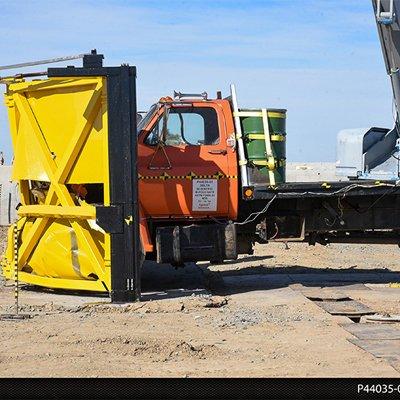President Trump has recently proposed a series of tariffs that could disrupt global trade and impact the global physical security market, among many others. He first proposed tariffs targeting aluminium and steel imports; in effect, the proposal would place a 25 percent tax on steel and a 10 percent tax on aluminium entering the United States.
Rising prices, rising tariffs
The resulting higher prices of imported aluminium and steel could raise the costs of a range of goods manufactured in the United States, including technology products. The tariffs have been widely interpreted as targeting the Chinese; indeed, the tariff announcement was followed quickly by news of exemptions for Canada, Mexico, the European Union, Argentina, Australia, Brazil and South Korea.The higher price tariffs of imported aluminium and steel have been widely interpreted as targeting the Chinese
A second wave of tariffs, announced days later, was even more targeted to the Chinese, specifically aimed at offsetting what Trump calls unfair Chinese practices related to intellectual property for high-tech industries. The $50 billion in tariffs and other penalties are a reaction to China’s theft of technology and trade secrets.
They are proposed under a rarely used provision of the Trade Expansion Act of 1962 that allows the President to impose tariffs on items being imported into the United States “in such quantities or under such circumstances as to threaten or impair national security.”
Trump objects to Chinese trade practices such as requiring companies to share trade secrets to gain access to the Chinese market and forcing companies to license their technology in China at below-market rates. China also uses state funds to buy American high-tech companies and has been accused of cyber-intrusions to steal technology.
All-encompassing change
The list of Chinese goods to be targeted for tariffs was announced this week. The list of as many as 100 categories is said to include “everything from shoes to clothing to electronics.” The inclusion of electronics is not surprising, given that electrical machinery, equipment such as cellular phones, and “machinery including computers” are the two largest categories of goods exported from China.
 |
| Tariffs, especially as they relate to Chinese goods, introduce a new element of change in the physical security market |
Their inclusion is appropriate given that high-tech items are aligned with intellectual property concerns that prompted the retaliation. Restrictions on certain types of Chinese investments will be aimed at China’s ambitious industrial policy seeking to dominate sectors such as artificial intelligence and mobile technology. The implementation of tariffs is a fulfilment of Trump’s campaign trail tirades against Chinese trade practices.#
Note that proposed tariffs, including retaliatory tariffs recently proposed by the Chinese, primarily serve as a starting point for further negotiations.
How does this affect the security industry?
What about the impact on our industry? Tariffs, especially as they relate to Chinese goods, introduce a new element of change in the physical security market, particularly surveillance cameras and other video products. In the last several years, entry of Chinese companies into the video market has up-ended pricing and captured large chunks of market share.
Western companies have struggled to compete against lower-priced Chinese products, made possible by large manufacturers’ lower costs and economies of scale. Chinese companies have also invested heavily in product development and R&D to expand the capabilities of their products at lower costs, and help to drive overall innovation among competitors and the market in general.The implementation of tariffs is a fulfilment of Trump’s campaign trail tirades against Chinese trade practices
Benefits versus limitations
Would implementation of tariffs reverse those trends? Any additional costs to goods caused by the tariffs would be passed on to customers; high-tech components on the list include "mounted lenses for use in CCTV cameras". Might higher prices resulting from tariffs help to close the gap between the lower prices of Chinese video surveillance products and those of the West?
Could tariffs slow down the growth of Chinese companies in the U.S. market, thus creating an opportunity for western companies to compete more aggressively? Might the uncertainties introduced by tariffs prompt security resellers or end users to avoid Chinese products?
Or as some economists warn, might tariffs have an overall negative impact on the manufacturing sector, and by extension the economy as a whole, that would slow down economic growth and drag down the industry’s recent economic boom as a consequence? Could the overtly protectionist approach backfire?
President Trump has tweeted: “Trade wars are good, and easy to win.” But let’s also consider the collateral disruption – to the economy and to our industry.









































